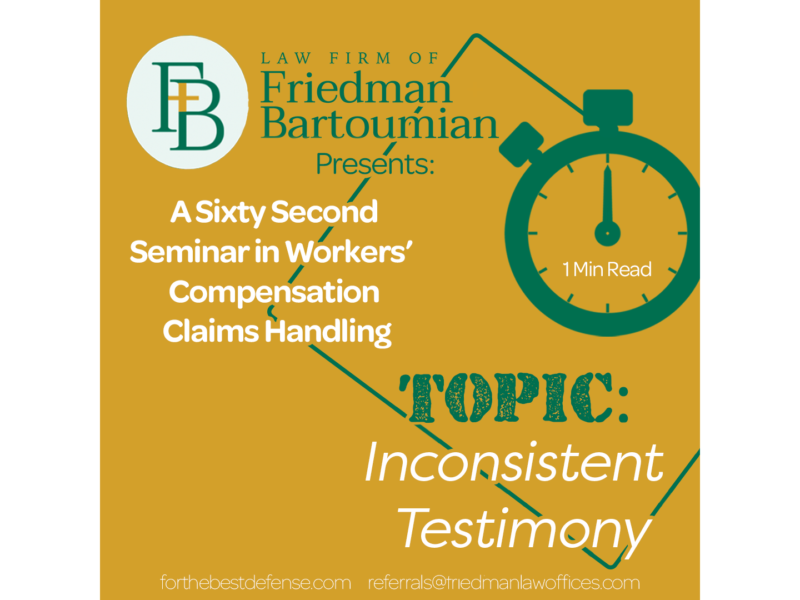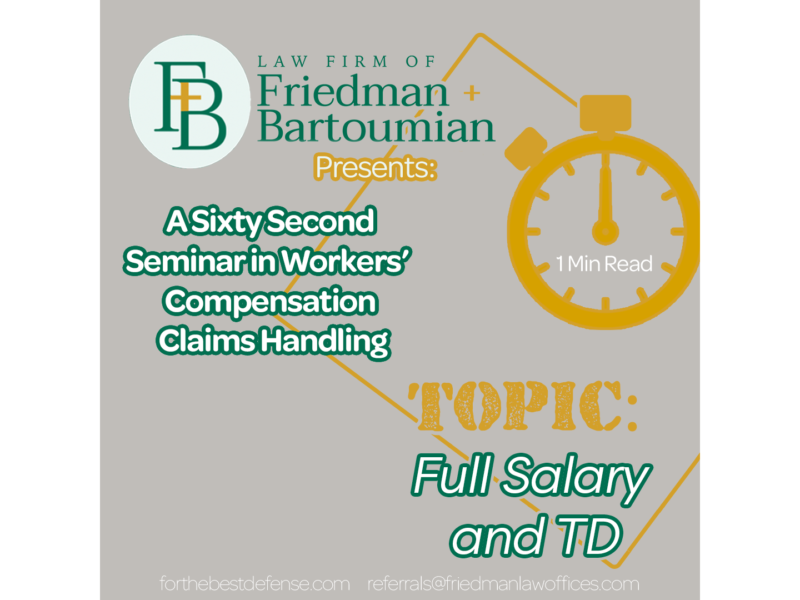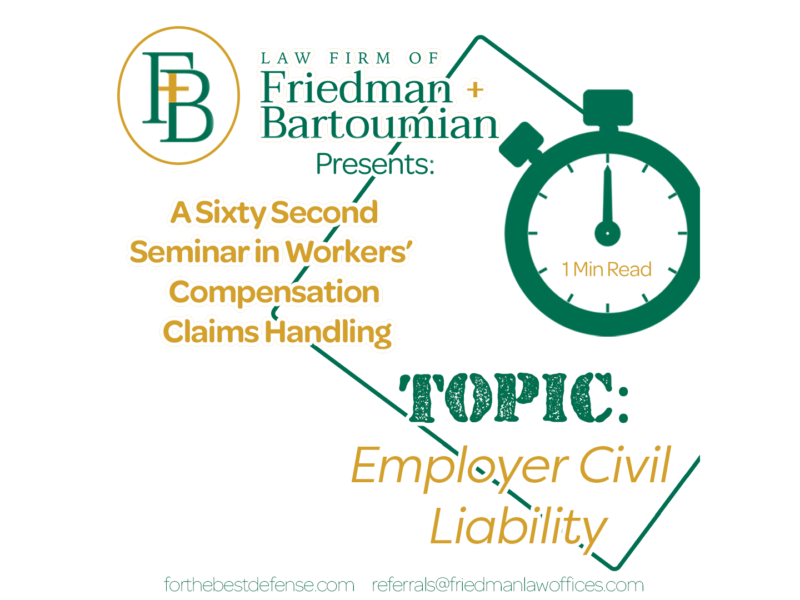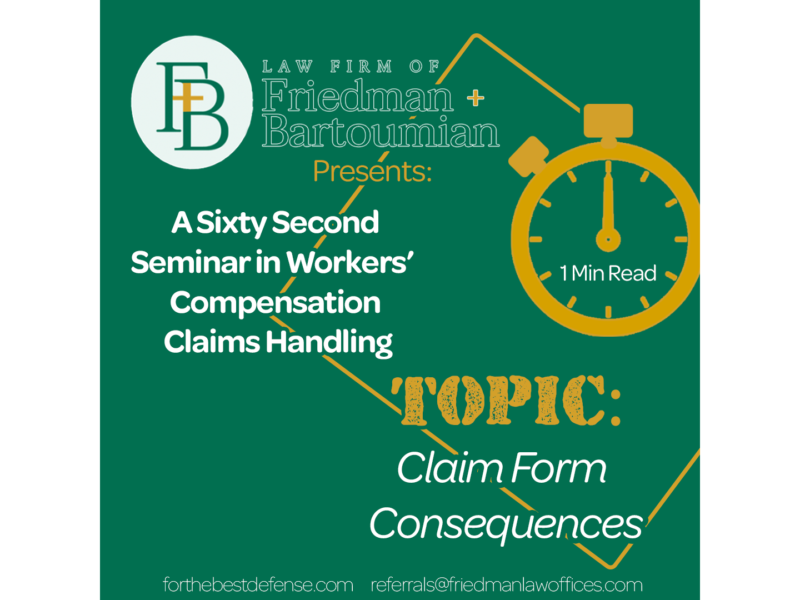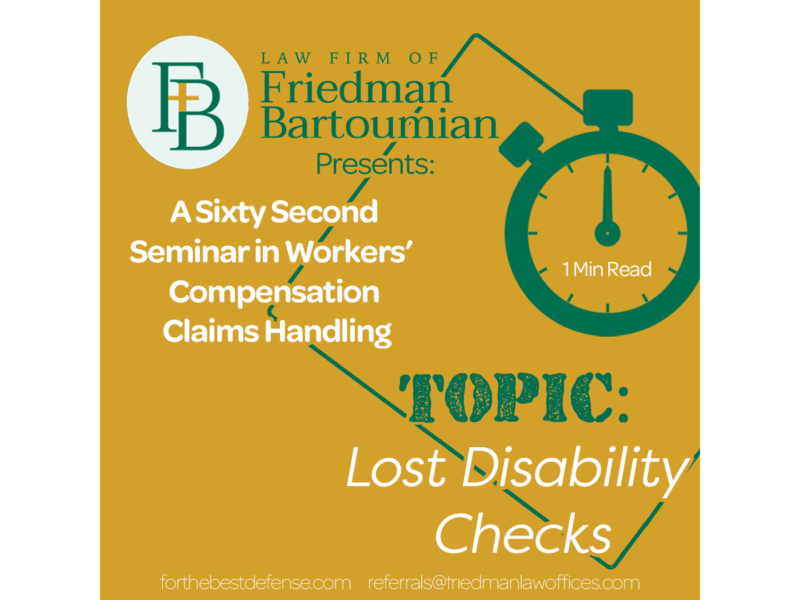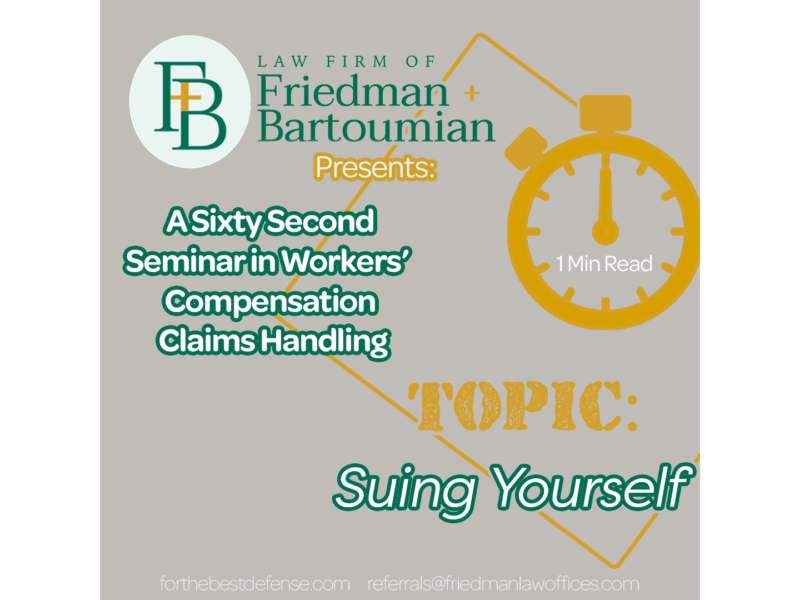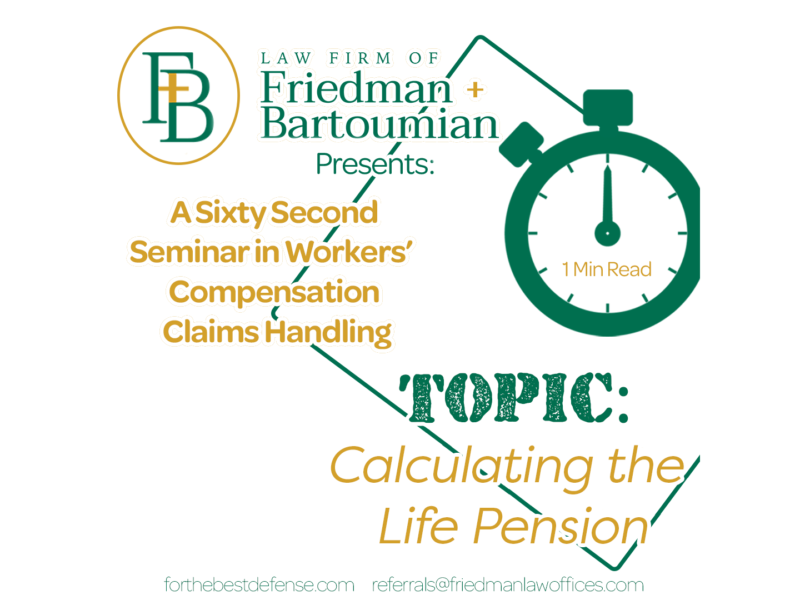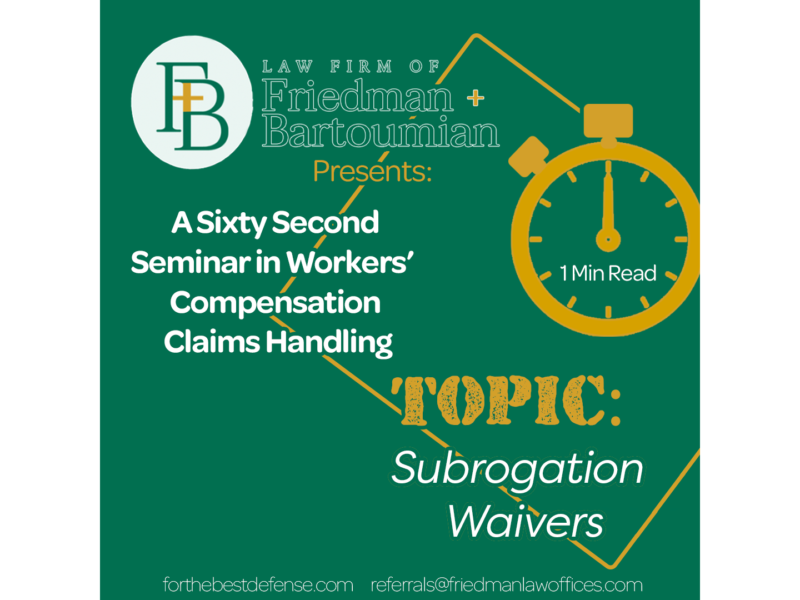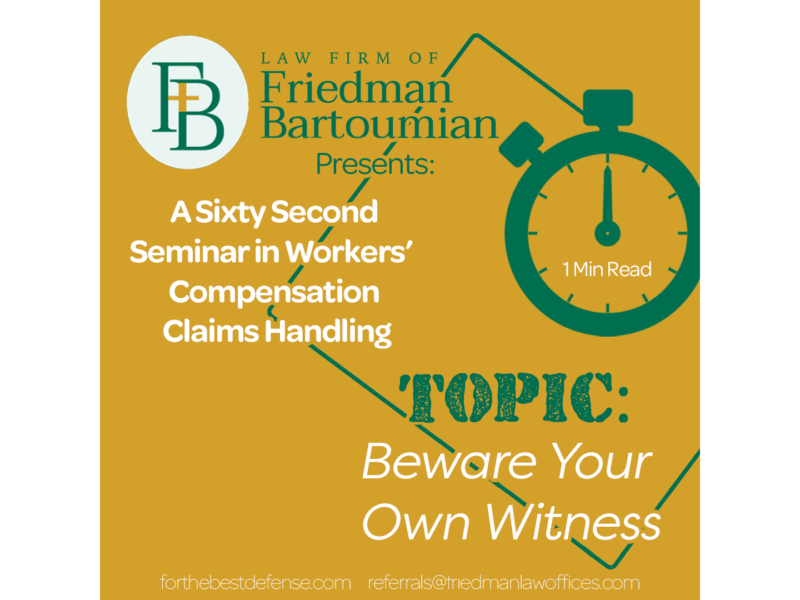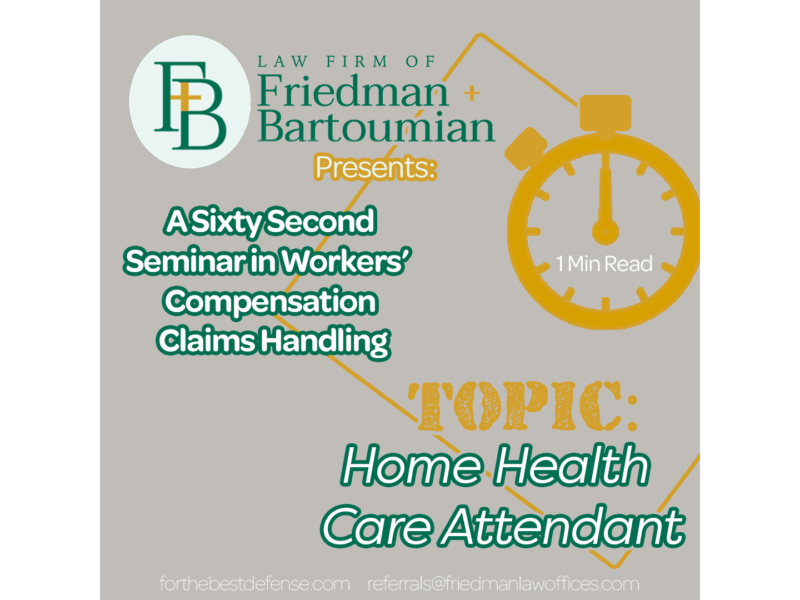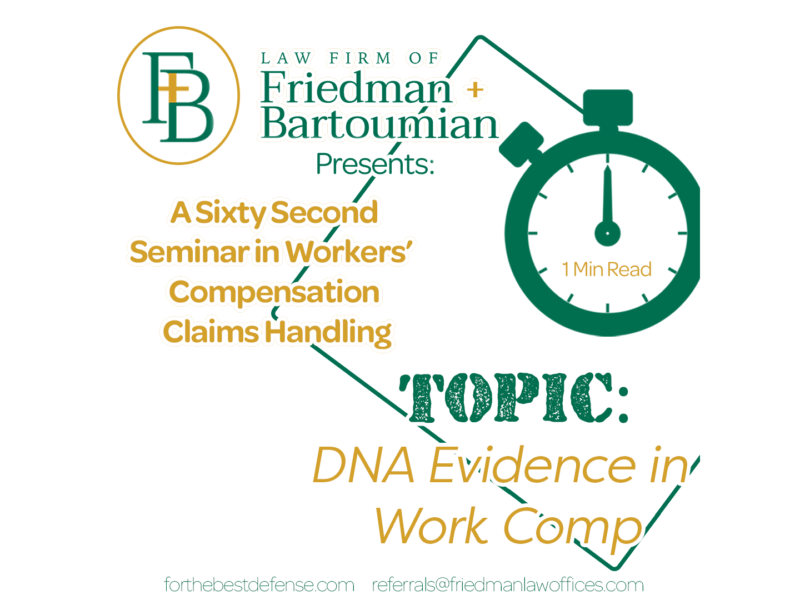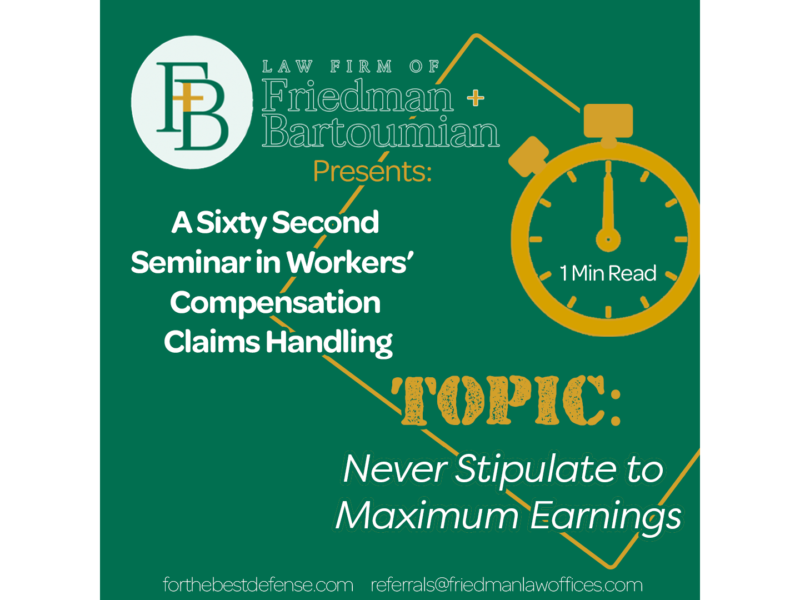It is quite common for an employee to file a claim for Unemployment Insurance benefits (UI) after an employee is laid off; however, to receive up to 26 weeks of UI benefits the ex-employee must certify under the penalty of perjury they were available for and capable of working every day. During the 26 weeks …
Inconsistent Testimony: A Sixty-Second Seminar in Workers’ Compensation Claims HandlingRead More

